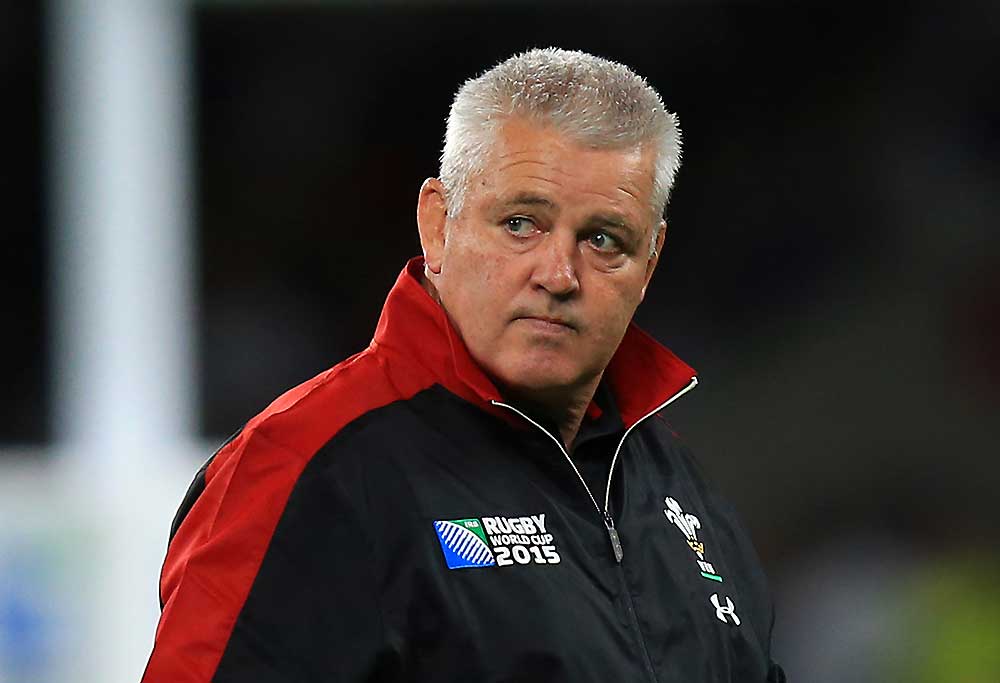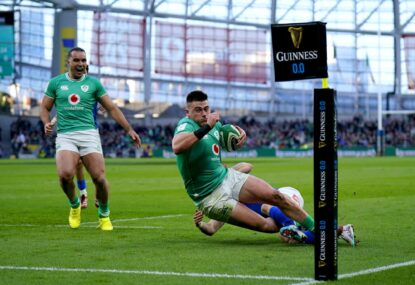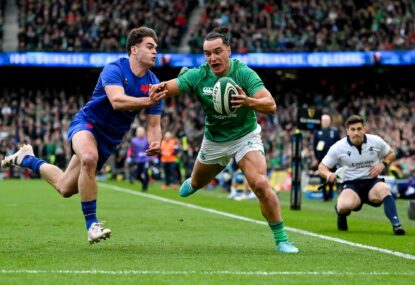Last weekend’s Six Nations action turned out some surprises, none bigger than Wales losing to Scotland for the first time in years.
Who saw this coming? Me. I did. And I wish I’d written an article about it beforehand so I could back it up.
Scottish teams in the Pro 12 have been on fire – Glasgow have been putting in astounding performances – and it has come through at the Test arena. This is a team on the up, with quick, fizzy halfbacks, awesome, fleet-footed centres, and an imaginative back three.
The signs were there last year, their performance against Australia was heart-breakingly close, and they have every chance on their day of running the best of the Six Nations teams more than close.
Wales on the other hand?
They are playing the same game, with different players. They have spoken about evolution, but the only thing I see them trying is different players using the same gameplan, with a touch more emphasis on offloading.
There is still the same tenets of ‘Warrenball’. Kicking out of hand from the back three, forward (and back) one-off runners off the 9. I mean, that was ridiculous, I have seen Dan Biggar, this year, as a crash ball. Thats not a 10’s damn job! Their job is to organise the attack and run for space, not play the battering ram.
The Welsh attack is too deep with Biggar, and the Scots were comfortable dealing with it.
The majority of play comes off the 9, and this involves one-off passes to the forwards. When it doesn’t and it gets to the 10, he passes to another forward, who will perform the same action. This gives the attack generally two options: playing off 9 or 10. Any motion involving going through the hands is nearly defunct due to the depth of the back line.
With Biggar and Scott Williams at 10 and 12, they should utilise a strategy that maximises the two playmakers: greater options, distribution, width. None of that is happening. When a 10 is being used as a crash ball it’s bad, but draw in Williams at 12, who is playing exactly the way Jamie Roberts used to play, and you have a problem.
The coaches, it seems, don’t know how to coach another attacking game plan.
One area that I also cannot fathom is their back three. In Liam Williams, they a player so respected for his silky running skills he has been signed by Saracens.
How do they use him? Kick it back Liam, keep it in touch and kick it back.
It’s a disgraceful use of their best runner.
The way forward is to get rid of coaches Rob Howley and Warren Gatland, and get Dave Rennie from Glasgow or a Super Rugby coach. Because Wales have the players, but not the gameplan or the coaches to make it happen.

However, the point of this article isn’t what they need, but to say what Ireland would have learnt, and in all honesty, the Irish would’ve learnt nothing new.
Their back three will be encouraged to attack. They will maul it with their forwards, work hard on the floor and pressure the Welsh in defence. The Welsh attack is not varied, and any metres made will be from passion, power and pick-and-go, not subtlety, deception or width.
Therefore, I predict Ireland will number up on the inside to drive back the forwards with two-on-one tackles, which in itself will result in the Welsh losing the gainline battle. They won’t be able to move it wide with the pace and flatness they need to make metres in the backline, apart from on turnover. If they try, the rush defence will cut off the outside and the Irish will be focusing on forcing the team back back into their umbrella.
Because of this, expect a lot of kicking and chasing from the Welsh. The Irish will want this, as their players are superb under the high ball, and against an unstructured defence.
The set piece will be key in this game, and that gives the Irish a further edge.
For Wales to have a chance, they must put on a performance on par with the one against England; stop forcing the offload and making errors in try-scoring positions. They do this and they can stay in the game, but Joe Schmidt will know exactly how to hurt the opposition.
Ironically, the way they’ll do it is exposing the deficiencies of Warrenball, which strangely can be done by playing to Ireland’s strengths. Physicality on the gainline, kicking accuracy, territorial pressure, and subtlety in the backline.





































































































